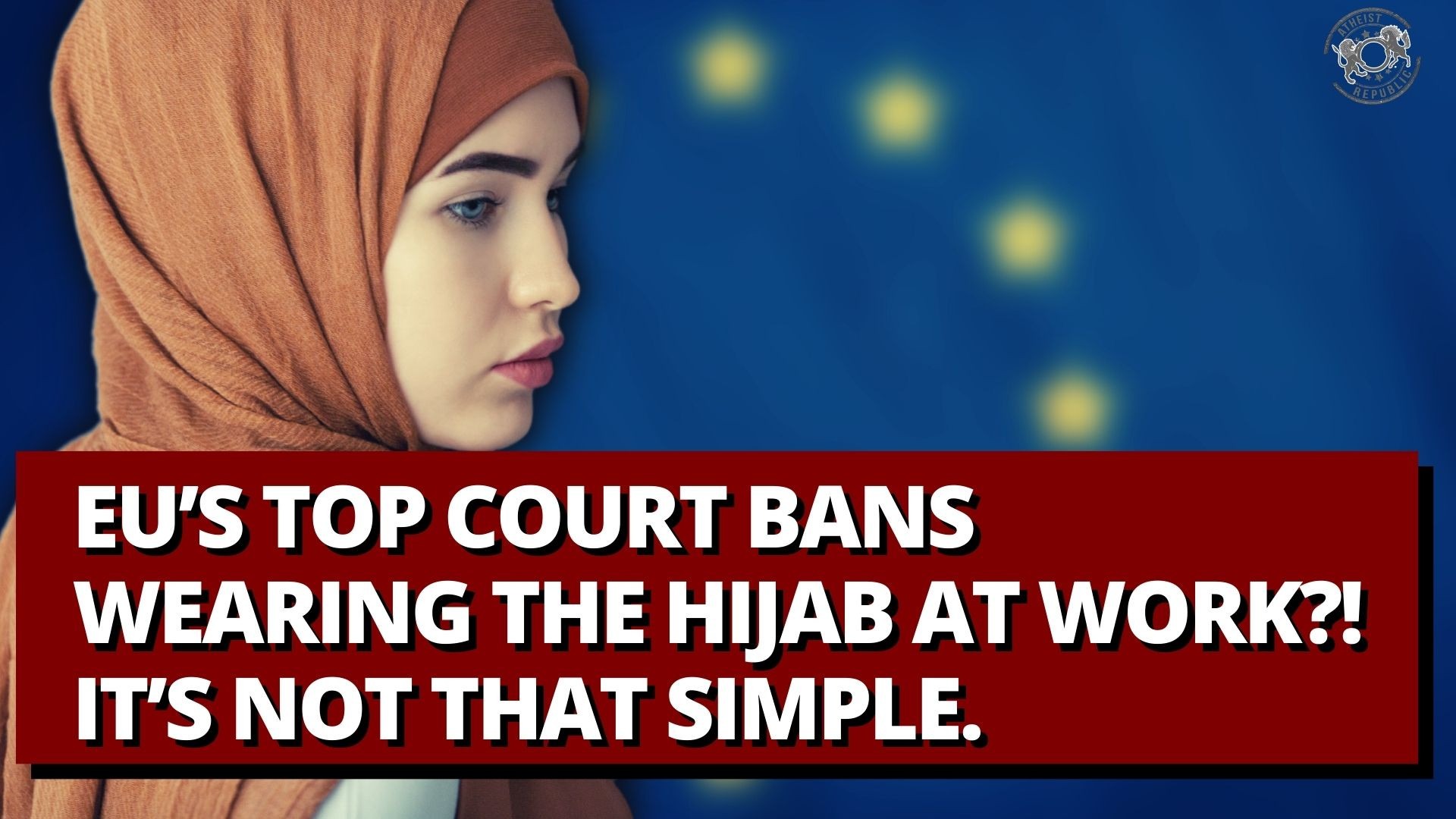
According to the EU’s top court ruling, companies in the European Union (EU) may now mandate that Muslim employees refrain from wearing a headscarf. Companies may only ban employees from wearing Islamic head coverings if required to project an image of neutrality to customers, the court said on Thursday.
The hijab, a traditional headscarf worn around the head and shoulders, has caused division across Europe for years, underscoring sharp differences over the integration of Muslims.
The court’s ruling addressed previous cases where two separate Muslim women in Germany were suspended from their jobs after they began wearing headscarves at work.
According to the court, “a prohibition on wearing any visible form of expression of political, philosophical or religious beliefs in the workplace may be justified by the employer’s need to present a neutral image towards customers or to prevent social disputes.
“However, that justification must correspond to a genuine need on the part of the employer and, in reconciling the rights and interests at issue, the national courts may take into account the specific context of their Member State and, in particular, more favorable national provisions on the protection of freedom of religion.”
One of the women was a special needs employee at a childcare center in Hamburg, operated by a charitable association. The other Muslim woman was a cashier at Mueller’s, a drugstore chain. Neither of the women was wearing headscarves when they began working at their respective companies but decided to wear them years later when they returned from parental leave.
On different occasions, each of the women was informed by their employer that wearing a head covering was inappropriate. According to court documents, they were suspended or told to find other employment if they continued wearing religious attire.
The rule forbidding the woman working at the care center from wearing the headscarf was not discrimination since the regulations also forbade Christians from wearing a cross. Religious attire or symbols must be removed.
In 2017, the Luxembourg-based EU Court of Justice (CJEU)said that certain companies might ban employees from wearing Islamic headscarves or any other visible religious symbols, but only under specified conditions. This ruling received a massive backlash among the religious population.
The Open Society Justice Initiative — part of the philanthropic organization known as the Open Society Foundations (OSF), founded by George Soros — advised concerns that the ruling “may continue to exclude many Muslim women, and those of other religious minorities, from various jobs in Europe.”
A representative of OSF, Maryam H’madoun, stated that employers need to tread carefully as “they risk being found liable for discrimination ... if they can’t demonstrate a genuine need for a religious dress ban.”
